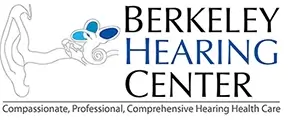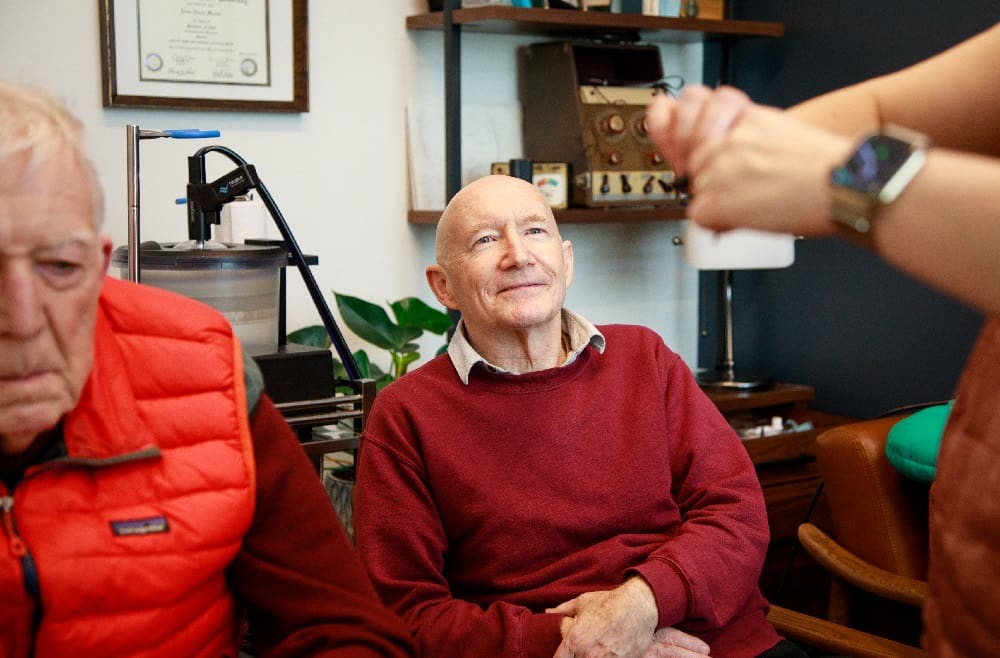2023-01-26
Jonathan Lipschutz Audiologist, M.S., F-AAA, Co-Owner
Unilateral hearing loss, or single-sided deafness, is when an individual hears clearly in one ear but has some level of hearing loss in the other ear.
This condition is more common in older adults but can happen at any age. Causes of unilateral deafness include infections, injuries, tumors, and congenital defects.
If you’re reading this and think you may be struggling with unilateral hearing loss, you don’t have to live with single-sided deafness—there are treatment options and ways to help alleviate your degree of hearing loss in one ear.
What Does Hearing Loss in One Ear Feel Like?
Hearing loss in one ear can feel like difficulty hearing or understanding speech and other sounds coming from the side of the affected ear.
It may also cause difficulty with sound awareness—locating the source of a sound—as well as difficulty hearing in noisy environments.
Unilateral Hearing Loss Treatment
Unilateral hearing loss management options may include hearing aids, cochlear hearing implants, and assistive listening devices. In some cases, surgery may be necessary to correct the underlying cause of the hearing loss.
The management of unilateral hearing loss, also known as single-sided deafness, can include a combination of different treatments, depending on the underlying cause of the hearing loss and the severity of the symptoms.
Some common management options include:
A hearing aid can be worn on the side of the affected ear to amplify sounds and improve hearing. Bone-anchored hearing aids can also help with single-sided hearing loss.
A cochlear implant is a device that is surgically implanted in the ear and can help provide a sense of sound to individuals with severe or profound hearing loss.
These can include devices such as FM systems, which transmit sound directly to the hearing aid or cochlear implant and can be useful in noisy environments.
Some people with unilateral hearing loss benefit from amplifying sound in the environment. This can be done through a device like a Sound Field System in a classroom or a TV listener in the living room.
In some cases, surgery may be necessary to correct the underlying cause of the hearing loss.
Speech therapy and auditory training can help individuals with unilateral hearing loss improve their listening skills and communication.
What Should You Do If You Are Experiencing Hearing Loss in One Ear?
If you think you have unilateral hearing loss, it is important to consult an audiologist for a proper diagnosis. Here are some steps you can take:
Call and schedule an appointment to have your hearing tested.
Be prepared to discuss any symptoms you may be experiencing, such as difficulty hearing in one ear, ringing in the ear, dizziness, or balance issues.
Our on-site audiologist will perform a hearing test, which will determine the degree and cause of your hearing loss.
Once diagnosed, we will discuss treatment options with you, which may include hearing aids, cochlear implants, assistive listening devices, surgery, sound amplification, and rehabilitation.
Follow the treatment plan and schedule regular checkups with our audiologist to monitor your progress and make adjustments to your treatment plan if necessary.
It’s important to seek professional help as soon as you suspect you have unilateral hearing loss, as early diagnosis and treatment can help prevent further deterioration of your hearing and improve your quality of life.
If you need to speak to an expert about any hearing-related concerns, please do not hesitate to call on the given number or visit your local Berkeley Hearing Center clinic.
Jonathan Lipschutz Audiologist, M.S., F-AAA, Co-Owner






